The best diapers for newborns are those designed for sensitive skin and offer strong leak protection. Pampers Swaddlers and Huggies Little Snugglers are popular choices due to their softness and absorbency.
Selecting what diaper is best for newborns is critical for both comfort and hygiene. As a parent, you want a brand that provides a snug fit, gentle materials, and advanced moisture-wicking capabilities to keep your baby dry. Diapers should also be free from harsh chemicals and fragrances to prevent rashes and skin irritations.
With countless brands on the market, it becomes essential to choose one that stands out for its reliability and positive customer feedback. Look for diapers with a cut-out design to protect the umbilical cord stump and those that are easy to fasten to ensure quick and hassle-free changes. The right diaper can ensure your newborn’s wellbeing and give you peace of mind.
Choosing The Right Diaper For Your Newborn
Welcoming a new baby into your life comes with many decisions. One of the first decisions you’ll face is choosing the right diaper. With countless options on the market, it is vital to select a diaper that will ensure your newborn’s comfort and health.
Factors To Consider
Not all diapers are equal. Parents must consider several factors when selecting the right diaper for their newborn:
- Absorbency: A diaper that absorbs moisture well keeps your baby dry and comfortable.
- Fit: The right fit prevents leaks and ensures that your baby can move freely.
- Material: Diapers come in various materials, including cloth and disposable options. Your lifestyle may determine your choice.
- Cost: The price of diapers adds up. Budget plays a role in your decision.
- Environmental Impact: Eco-friendly diapers minimize waste and are gentler on the planet.
Importance Of Skin Sensitivity
Infants have delicate skin that requires gentle care. Here are the reasons why paying attention to skin sensitivity is crucial:
| Reason | Details |
| Prevent Rashes: | Hypoallergenic diapers reduce the risk of irritation and diaper rash. |
| Avoid Allergies: | Free of fragrances and dyes, diapers designed for sensitive skin prevent allergic reactions. |
| Overall Comfort: | A comfortable diaper enhances your newborn’s well-being and mood. |
What Diaper is Best For Newborns Available On The Market?
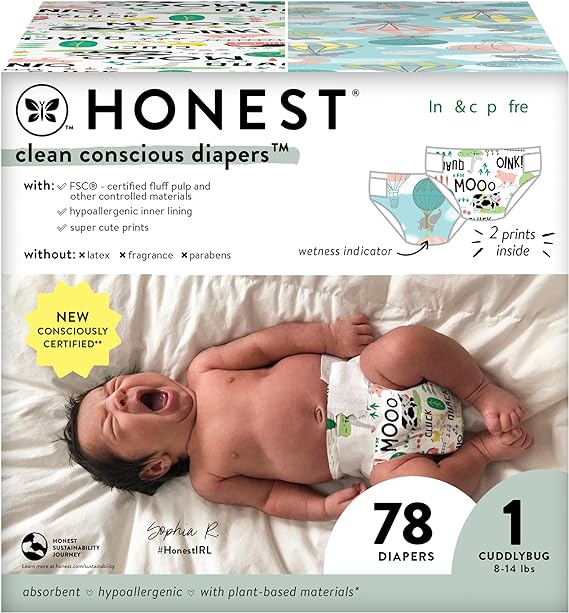
Choosing the perfect diaper for a newborn is crucial. New parents face an array of options. The right diaper ensures comfort, leak protection, and care for delicate skin. Three main types exist on the market.
Disposable Diapers
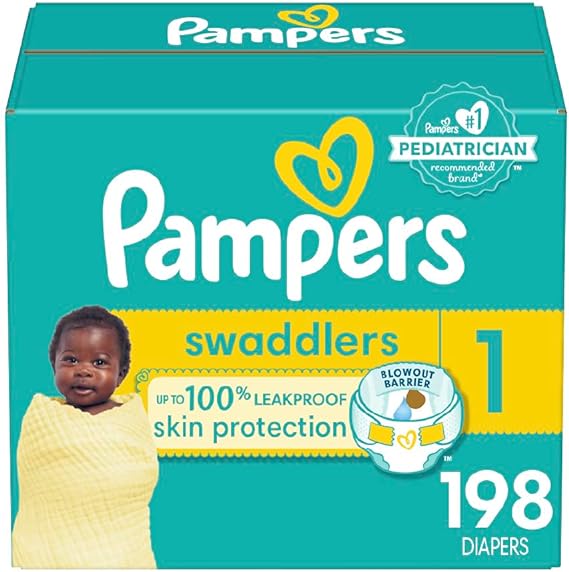
Disposable diapers are convenient and highly absorbent.
- They offer ease of use.
- Leak protection is superior.
- Many brands feature wetness indicators.
- They are readily available in stores.
Remember to check for the right size for your newborn.
Cloth Diapers
Cloth diapers are an eco-friendly choice.
- They are reusable and durable.
- Variety in materials like cotton, bamboo, or hemp.
- Care involves washing and drying.
They come in different styles like prefolds, pockets, or all-in-ones.
Biodegradable Diapers
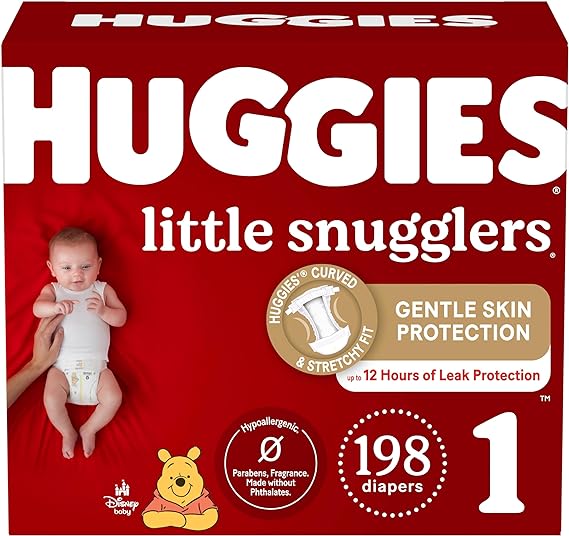
Biodegradable diapers combine convenience with eco-friendliness.
| Benefits | Considerations |
| Break down faster in landfills. | Can be more expensive. |
| Made from natural materials. | Availability may be limited. |
Great for parents mindful of their carbon footprint.
Top-rated Diapers For Newborns
Finding the perfect diaper for a newborn ensures comfort and prevents leaks. Parents looking for top-rated diapers want ones that are both gentle on baby’s sensitive skin and effective at keeping messes contained. Below are some highly recommended options that have garnered praise from caregivers and industry experts alike.
Features Of Best-selling Brands
The best diapers offer a blend of absorbency, softness, and a snug fit to ensure a happy baby:
- Super Absorbent Core: Locks in wetness for hours.
- Wetness Indicator: Shows when it’s time for a change.
- Soft Liners: Protect baby’s skin from irritation.
- Stretchy Sides: Offer a comfortable, secure fit.
- Breathable Materials: Keep baby’s skin healthy and rash-free.
- Eco-Friendly Options: Use sustainable, non-toxic materials.
Parental Reviews And Tests
Parents often share their experiences and put diapers through real-life tests. Based on those, here are the standout choices:
| Brand | Absorbency | Softness | Fit | Eco-Friendly |
| Pampers Swaddlers | Excellent | Very Soft | Great | No |
| Huggies Little Snugglers | High | Soft | Snug | No |
| Bambo Nature | Good | Soft | Comfortable | Yes |
| Honest Company Diapers | Good | Gentle | Good | Yes |
The Debate: Cloth Vs. Disposable
Choosing the right diaper for your newborn can feel like navigating a minefield of options. Parents often find themselves torn between cloth and disposable diapers. Each has its advocates and detractors, and the choice can impact your baby’s comfort, your wallet, and the planet. Let’s dive into the pros and cons of each type and the environmental implications to help you make an informed decision.
Pros And Cons Of Each Type
| Type | Pros | Cons |
| Cloth Diapers | Reusable, cost-effective in the long runGentle on skin, less chemical exposureVariety of materials and fits available | Requires regular washingMay need more frequent changesInitial investment higher than disposables |
| Disposable Diapers | Convenient and easy to useFeatures quick absorbency technologyWidely available in many brands | Can be more expensive over timeGreater risk of diaper rash for some babiesSignificant environmental impact |
Environmental Impact Considerations
The environment plays a crucial role in the cloth vs. disposable diaper debate. Cloth diapers champion sustainability with their reusability. However, they do require water and energy to launder. Disposable diapers, on the other hand, contribute to landfill waste, but advancements in technology are reducing their carbon footprint. Below is a quick breakdown:
- Cloth Diapers: Lower waste, reusable, but energy and water intensive
- Disposable Diapers: High waste, convenient, continually improving in eco-friendliness
Safe Diaper Practices For Infants
Choosing the right diaper for a newborn is crucial. Not only does it keep the baby dry and comfortable, but it also helps prevent unpleasant rashes and skin irritation. In this section, we’ll discuss safe diaper practices to ensure your infant remains happy and healthy.
Proper Diaper Fit And Size
Finding the right diaper size is essential for your newborn’s comfort. A proper fit prevents leaks and skin irritation. Here’s what to keep in mind:
- Check weight guidelines on diaper packages.
- Look for snug fits around the waist and legs.
- Avoid tightness, which can cause chafing.
- Adjust as your baby grows for continuous comfort.
Changing Routines And Frequency
A newborn needs frequent diaper changes. To maintain skin hygiene:
- Change diapers every 2-3 hours or when soiled.
- Check for wetness by feeling the diaper.
- Use gentle wipes for a soft, clean change.
- Give diaper-free time to let the skin breathe.
Dealing With Diaper Rash
Diaper rash is common but preventable. Keep your baby’s skin rash-free with these steps:
- Apply rash cream as a protective barrier.
- Change diapers promptly to minimize moisture.
- Pat the skin dry, don’t rub, after cleaning.
- Choose breathable diapers to promote air flow.
Where To Buy And How To Save
Finding the perfect diaper for your newborn is important. It’s even better when you can do so without breaking the bank. This section will guide you through practical strategies to purchase diapers and save money simultaneously.
Online Resources
The internet makes shopping for diapers convenient. Various online platforms offer a wide selection with detailed descriptions and user reviews. This helps you compare brands, sizes, and styles from the comfort of home. Here are places you can look:
- Online marketplaces such as Amazon, Walmart, and Target.
- Exclusive baby product websites like BuyBuyBaby and Diapers.com.
- Brand websites for direct purchases and brand-specific coupons.
Local Stores
For those who prefer in-person shopping, local stores provide the advantage of physical inspection and immediate purchase. You can find quality diapers at:
- Supermarkets like Kroger and Publix
- Pharmacies including CVS and Walgreens
- Baby supply stores which might offer loyalty programs
Deals, Coupons, And Bulk Buying Tips
Saving money on diapers is possible with the right strategies. Here’s how:
- Look for weekly ads from local stores for promotions.
- Subscribe to newsletters from baby product sites for exclusive deals.
- Join reward programs where points can be redeemed for discounts.
Consider these bulk buying tips:
- Purchase larger quantities at wholesale clubs like Costco or Sam’s Club.
- Watch for online bulk discounts or buy-one-get-one-free offers.
- Always compare unit prices to ensure the bulk deal is indeed cost-effective.
For coupons, use these methods:
- Clip coupons from the Sunday newspaper or parenting magazines.
- Download coupon apps like Ibotta or Checkout 51 for digital savings.
- Check brand websites for printable coupons or sign up for their mailing lists.
Frequently Asked Questions On What Diaper Is Best For Newborns?
What Factors Determine The Best Newborn Diaper?
The best newborn diapers are judged based on absorbency, fit, softness, and skin sensitivity. Look for diapers designed to minimize the risk of diaper rash and leaks to ensure comfort.
How Often To Change A Newborn’s Diaper?
Generally, newborn diapers should be changed every 2-3 hours, and immediately after a bowel movement, to maintain hygiene and prevent rashes.
Are Cloth Diapers Advisable For Newborns?
Yes, cloth diapers are a viable option for newborns, offering an eco-friendly and cost-effective alternative provided they’re changed frequently and properly cleaned.
Conclusion
Choosing the right diaper for your newborn is crucial. Softness, absorbency, and fit are key factors. Brands like Pampers and Huggies are popular, but eco-friendly options impress too. Remember, your baby’s comfort trumps all. Happy parenting as you navigate this new journey!


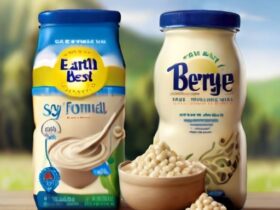
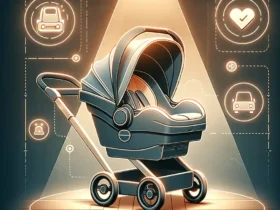
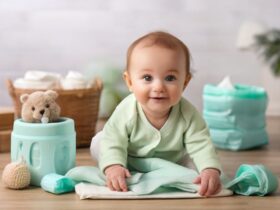
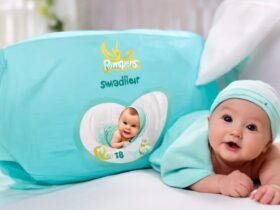




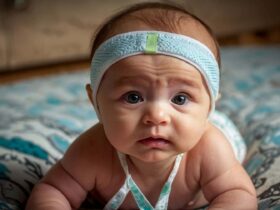


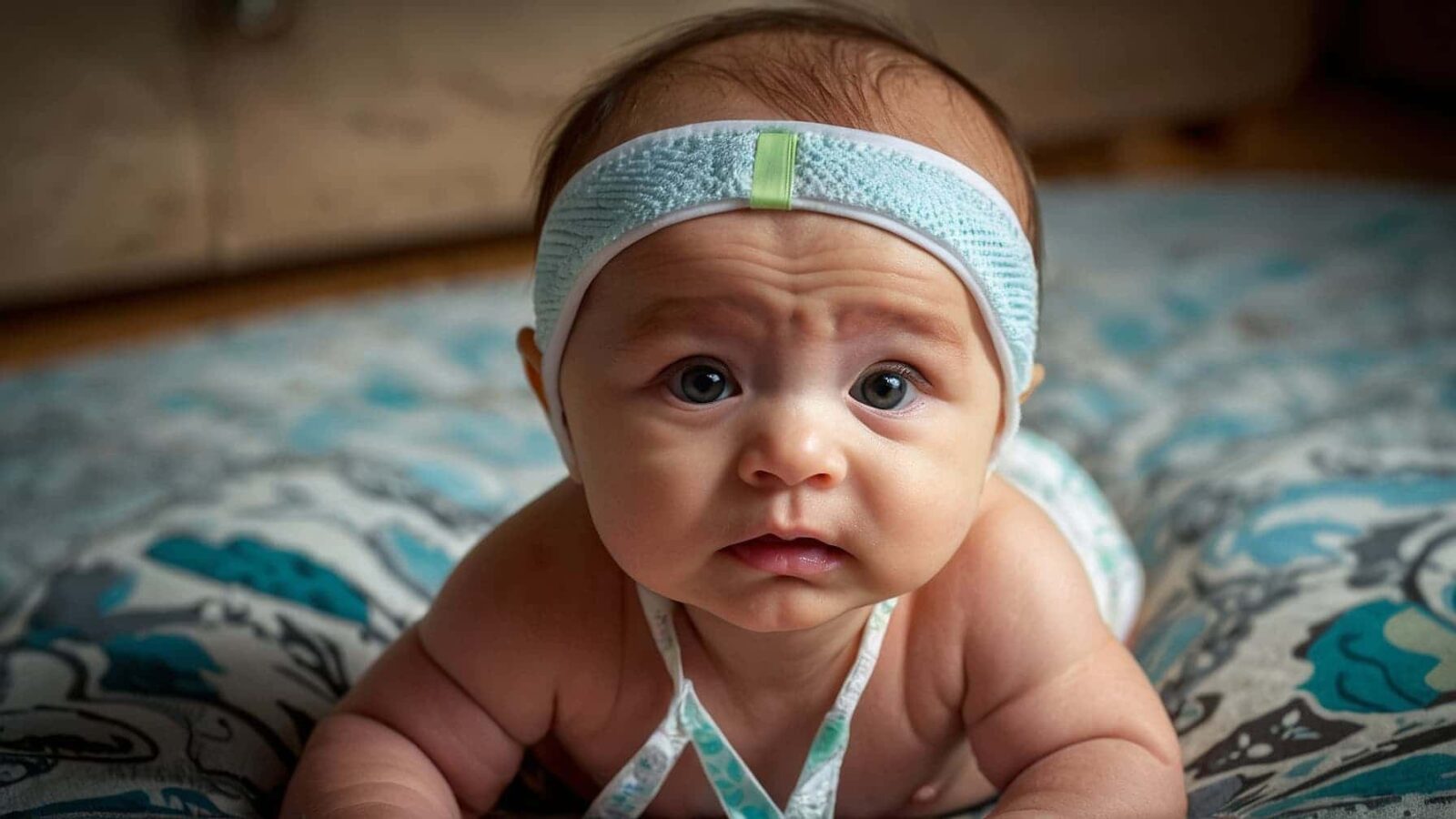
Leave a Review